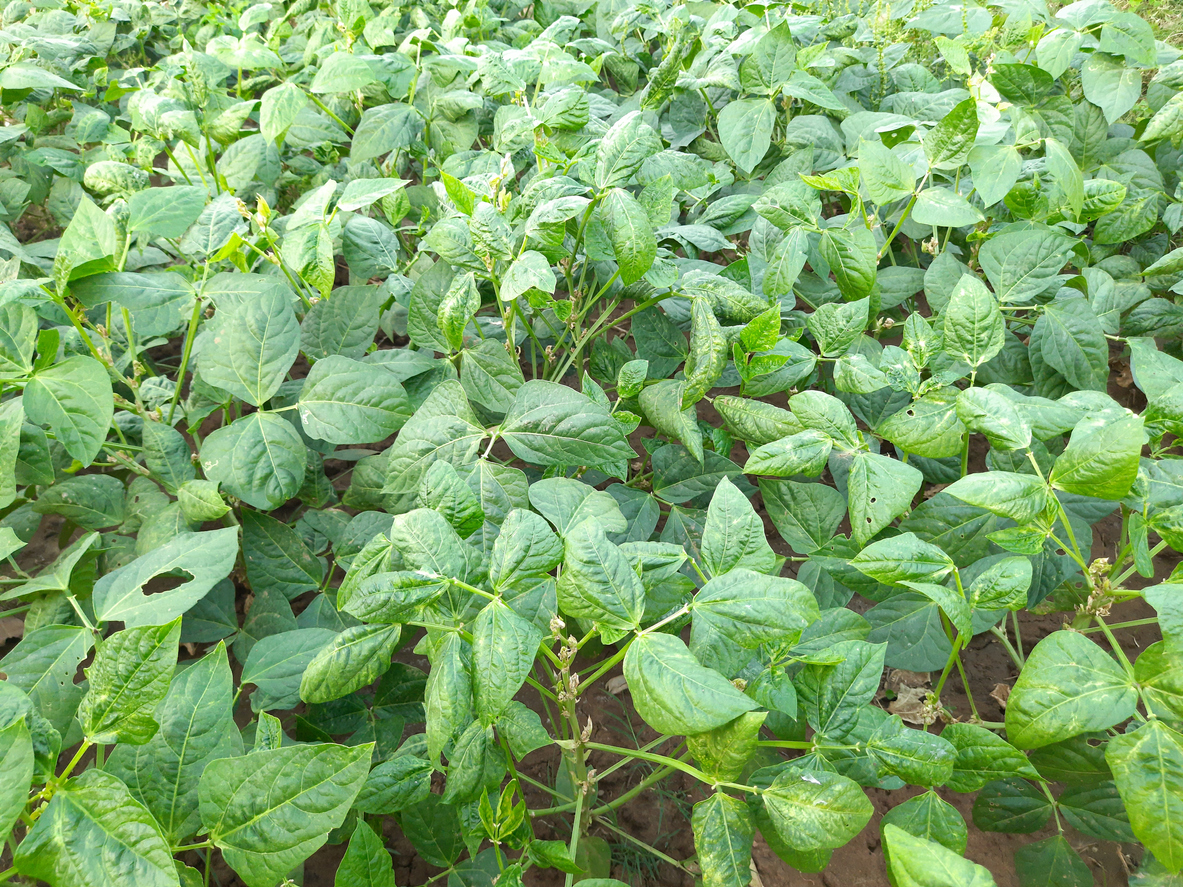
Biotech a Tenable Solution to Addressing Hunger in Africa, Experts Say
June 16, 2021| |
Agricultural experts continue to call for increased adoption of crop biotechnology citing it as one of the key tools required to address the growing food demand as well as other challenges that the world continues to face.
During a webinar on biotechnology as a tenable solution to address hunger in Africa organized by the African Agricultural Technology Foundation (AATF), the experts expressed concern that the more we delay adoption of the technology, the more the continent's farmers continue to lose out on its benefits. The dilemma has been heightened by the COVID-19 pandemic situation where it has emerged that more than ever before, adoption and implementation of the technology is prudent and a delay of this is much more expensive.
ISAAA AfriCenter Director Dr. Margaret Karembu, for instance, indicated that the pandemic has caused unprecedented disruption of production and distribution of food thus raising the continent's food insecurity further. She explained that as a result, there is a need to facilitate the transition of biotech crops in research and development pipelines to commercial levels so that farmers are able to access them. "We need to trust science and the application of science-based efficient regulations which are key if we have to mitigate losses that delayed decision-making at the regulatory level has cost farmers," said Dr. Karembu.
According to Godwin Lemgo, the Regulatory Affairs Manager (Africa) at Bayer Crop Science, political goodwill and the governments' commitment is a key policy and regulation enabler for stimulating the adoption and deployment of biotech across Africa. "To be able to effectively adopt crop biotechnology, we need risk-proportionate science-based policies that provide process clarity, data requirement, and harmonization, confidential business information protection, liability redressing systems for encouraging the deployment of the technologies and predictable decision-making processes," asserted Lemgo.
AATF's PBR cowpea project manager Dr. Abdourhamane Issoufou Kollo observed that Africa bears the heaviest brunt of food insecurity saying this calls for more government support and intervention. "We have very good and able scientists who can do the job but we need more funding for research and development especially in biotechnology," he appealed.
Research findings indicate that reduced pesticide use, increased global farm income, reduced global carbon emission, and improved global food production continue to be realized with the adoption of biotech tools.
For more on this and biotech developments in Africa, contact Dr. Margaret Karembu at mkarembu@isaaa.org.
| |
You might also like:
- Africa Leads Progress in Biotech Crop Adoption with Doubled Number of Planting Countries in 2019, ISAAA Reports
- Long Wait Over as Kenya Finally Commercializes Bt Cotton
- Nigeria Approves First GM Food Crop for Open Cultivation
Biotech Updates is a weekly newsletter of ISAAA, a not-for-profit organization. It is distributed for free to over 22,000 subscribers worldwide to inform them about the key developments in biosciences, especially in biotechnology. Your support will help us in our mission to feed the world with knowledge. You can help by donating as little as $10.
-
See more articles:
-
News from Around the World
- Could Gene Drive Protect Nature?
- Biotech a Tenable Solution to Addressing Hunger in Africa, Experts Say
- USDA Pushes Reform on Animal Biotech Regulations
- Study Shows Irish Potato Famine Pathogen Stoked Outbreaks on Six Continents
- Scientists Report a Plant Part in Arabidopsis for the First Time
- Genome of Little Known Disease Offers Hope for Citrus Plants
- Nicotinamide Can Protect Wheat from Fungal Attack, Study Shows
- Australia's Experience Highlights Importance of Regulations and Public Trust in Consumer Acceptance of Gene Editing
- Report Finds COVID-19 Pandemic Slowed Biotech Crop and Animal Approvals in the Philippines
-
Research Highlights
- Endogenous Promoters Induce Expression of Functional Genes in Soybean
-
Plant
- EMBRAPA Tackles Brazil's Regulatory Framework for Genome Editing
- Harmonized Regulations Key to Optimizing the Potential and Benefits of Gene Drive Technology
-
Read the latest: - Biotech Updates (December 17, 2025)
- Gene Editing Supplement (December 17, 2025)
- Gene Drive Supplement (February 22, 2023)
-
Subscribe to BU: - Share
- Tweet

